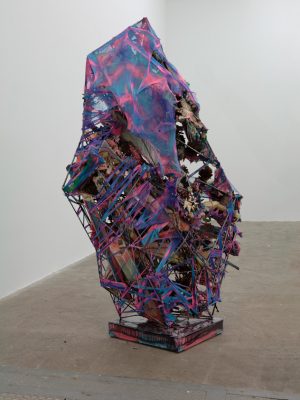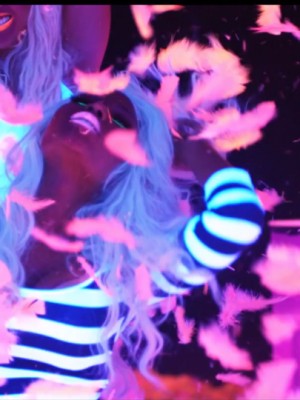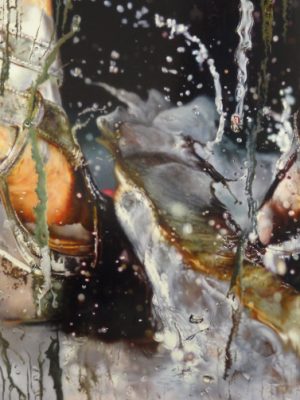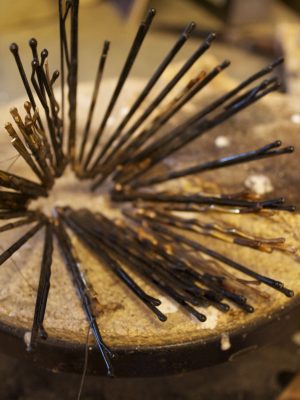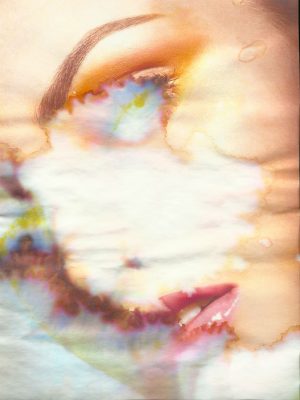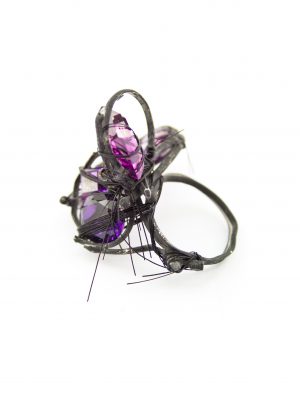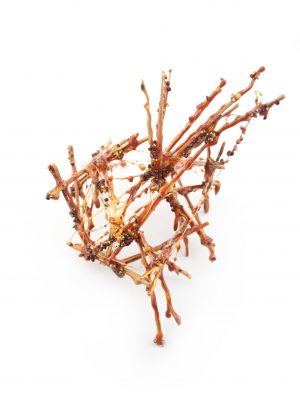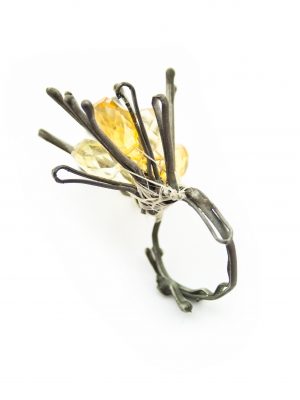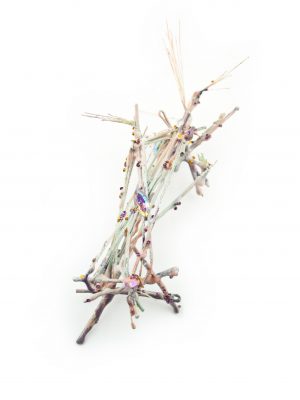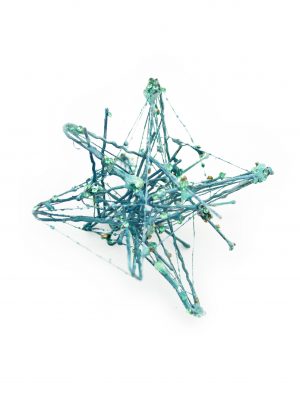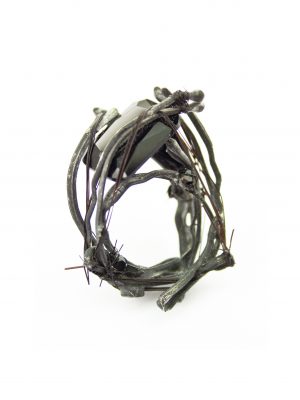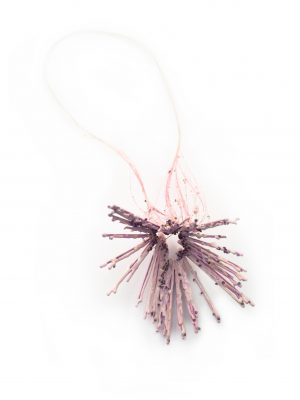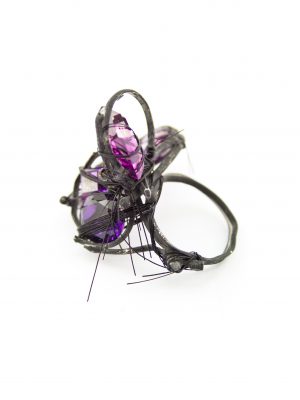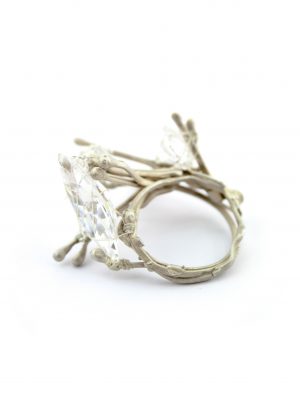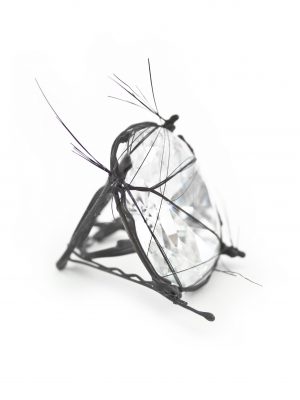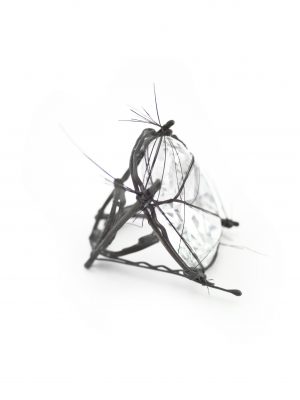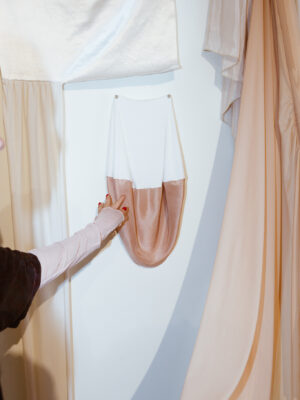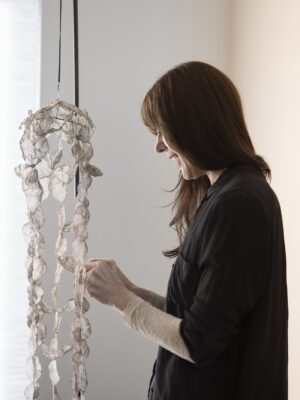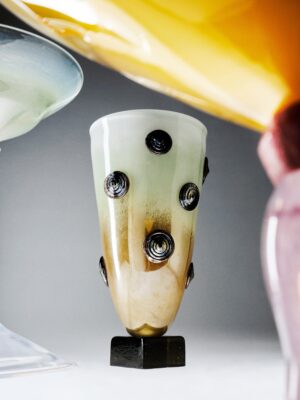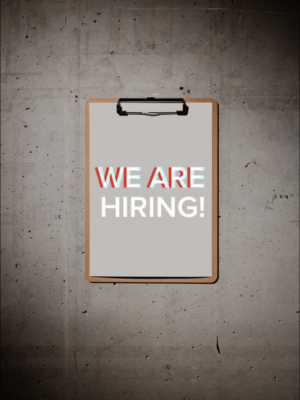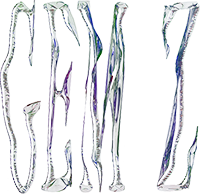CURRENT OBSESSION:
What’s your story? You are an American, living in Stockholm, graduated from Konstfack. What more?
Adam Grinovich:
In Herman Melville’s “Moby Dick” Captain Ahab chases a mythical deathless white whale. The consequences of his obsession with possessing this whale alienates him from society, destroys personal relationships, and ultimately ends with his demise as well as the entirety of his faithful crew. I am Ahab. I moved to Stockholm to pursue a dream, an idea that I could not articulate but nevertheless blindly threw myself into. Whereas Ahab had an identified obsession, my goals are ever expanding, dispersing, and exchanging. America is my home, and I miss it deeply, but I am determined to bear my forward course until I reach a certain point, a point, which I have still yet to identify. Possibly I’m searching for a missing part of me that I can never reclaim, possibly I’m trying to slay an immortal beast.
C.O.:
You make a lot of work: quantity and quality. Is it a particularity of a male artist: productivity, without being attached to certain “collections”, “order”; just making work for the sake of releasing the energy?
A.G:
I’ve never thought about the link between the link between productivity and being a male. Perhaps you’re right. I certainly have an affinity to discipline that I’m sure that I learned from my father. Then again I have a certain anxious fear of listlessness that I inherited from my mother. I realized a long time ago that I did not want to be attached to any sort of specific label. When I was growing up everyone inadvertently fell into classifications (i.e. smart kids, jocks, stoners) and this determined personal identities. It’s surprising to find out that this continues on in adult life, and to a larger degree in artistic life. I’ve always seen my artistic process as a sort of perpetual identity crisis. I need to produce a large amount in order to balance all of my personal traits. Ultimately I’m just trying to keep up physically with what is going on internally.
C.O.:
“Hairpins” is the project started in 2010 (?), which you constantly revisit. Tell us about the inception within this body of work.
A.G.:
Several years ago I was walking through a subway station in Munich and I saw a Muslim girl, probably in her 20’s, almost entirely veiled by a burka. As we passed I caught site of something vibrant and sparkling. I looked at her face and realized that a small rectangle revealed her eyes that were made up elaborately with glitter and shades of blue. This was the moment of inspiration for the hairpin series. I was so impressed with this girl, that she was able to completely take advantage and glamourize this small amount of space that was available. It was in such stark contrast to the rest of her appearance that it seemed to me in some way profane, really provocative. The hairpin series is about this instant of glamour, of becoming overwhelmed by a certain feminine mystique.
C.O.:
Is hairpin a symbol or a material? You construct crosses from them. And yet in other cases they become a sort of drawn outline, yet rigid and reliable enough to help creating (challenging, but still) an archetype of a ring with a baguette-cut stone?
A.G.:
I love symbols, I love archetypes. I see symbols and archetypes as material. Jewelry for me is about an infinite multitude of levels, and I try and work with this. The hairpin is something that anyone can recognize; it speaks of a certain type of intimacy, a secrecy. Hairpins are designed to be as inconspicuous as possible. A woman stands in front of a mirror and fixes her hair before an event or a night out, and afterwards lets her hair down before she goes to bed. The hairpin embodies both the process of creating glamour and of revealing vulnerability. The hairpin series is about manifesting these sentiments, by creating riotous colorful forms as well as sensitive protective environments. Formally I am trying to reflect both on commercially available jewelry as well as abstract emotive expressions.
C.O.:
What is this never-ending, cycled sentence, that frames the work:
“…I cannot do this anymore so goodbye what’s your name and what’s your name fragrance of your past is the only cover stinking up the burned up shelter that you left me to die I wish I couldn’t find the hope hope is all I need to explore another day turning back to say I cannot do that…”
A.G.:
It’s often in life that certain songs or lyrics are associated with certain moments, especially if that moment is very charged with emotion. The text that encircles the hairpin series is from a song that affected me very much during the creation of the original series. I chose to include it in the website because I feel that the hairpin series not only represents glamour and mystique, but also a specific pang of realization (in this case the ending of a relationship). It’s the emotional counterweight of this thrill of discovery that I mentioned earlier in the interview. Its equivalent to the correlation between drinking and a hangover. Sometimes the world opens up to you and shows you an infinite potential, sometimes it closes down and reminds you that everything has its limits. Glamour can be both a joy and a threat.
C.O.:
Tell us about the website. It does create certain palpitation. The viewer is becoming familiar not only with your work, but also with a kind of ironic, bold, boyish thinking. What is the core message there?
A.G.:
For the website I really tried to channel the teenager inside of me; the way that someone might cut out pop-stars from magazines and tape them to their bedroom wall. I was very conflicted on what to do with a website for the longest time, its such a public format that aligns you in one way or another (especially for an artist). Even choosing a font was a severe source of stress. The website is an answer to this feeling of paralysis. I did it all myself, and I am very far from a graphic designer, so the goal was to go for a DIY approach, the same way that the punk scene generated zines as a reaction to magazines. I hope that site is the zine of graphic design, just jam it all in a photocopier and press the button. As for the core message, I would have to say that it is a rebellion to the common methods of building and using a website. It requires a certain amount of patience and dedication on the part of the viewer. I choose to put my full effort into the creation of objects, my website is my attempt to create an amalgam digital object.
C.O.:
Judging by the images content on the website Satan reoccurs often. There is a distinct interest in dark, slippery, spiky, weird, tangled, and powerful. Is this your Eros – driving force in making work?
A.G.:
The satanic is something that I have always been interested in; I’m naturally drawn to all of the aspects that you mentioned. It’s funny because my interest has nothing to do with an opposition to Christianity (something which I actually deeply respect). Satan and all of the “darker” aspects in relation to mythology and spirituality are such a fascinating phenomenon. I’m interested in the fluxuating wave of power that these elements can have, one end of the spectrum being dangerous and perverted and the other being almost humorous. It’s the difference between an Albrecht Durer woodcut and a t-shirt with a pentagram on it; today you cant accept one without acknowledging the other. The world that I live in does everything it can to reduce the power of religious aspects. I suppose what I am doing is an attempt to kindle the embers of significance. I am interested in how these previously unthinkable images are now assimilated into contemporary culture, in trying to balance a cultural saturation with a visceral potency.
C.O.:
What is the purpose of A5? And most importantly, why did the three of you feel the need of not just making projects together as independent artists, but promote the group? Unite and conquer?
A.G.:
The word purpose is great in this question. The purpose of A5 is to open up a space large enough for three individual artists to experiment without having to take the specific responsibility that we might need to account for individually. A5 was created in order to generate something a bit more playful more immediate, more responsive… Personally I can say that every time that A5 finishes a project I am more enthusiastic about going back to my personal work. In the end I am extremely inspired by the other group members. A5 is about drawing upon this feeling of enthusiasm and sharing it in a cyclical way.
